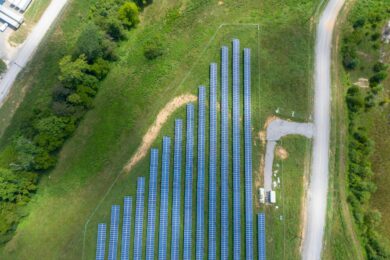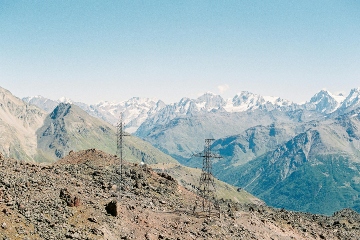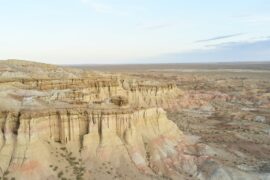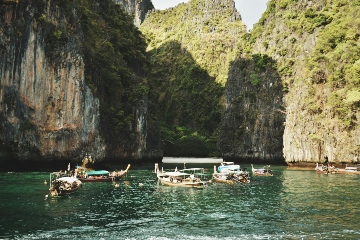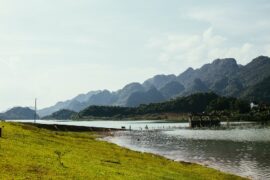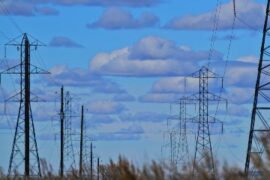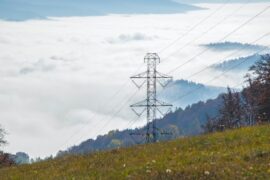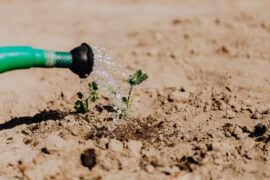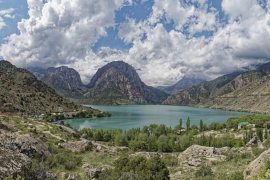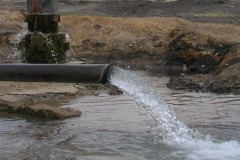Tania Imran holds a BE. in Environmental Engineering and an MSc in Groundwater and Global Change. As a recipient of the Erasmus+ scholarship, she has graduated with a degree in Water Science and Engineering from IHE Delft Institute for Water Education (The Netherlands), Environmental Engineering from Instituto Superior Técnico (University of Lisbon, Portugal) and Hydroscience Engineering from Technische Universität Dresden (Germany).
She has previously served as a program officer at an environmental think tank where she worked with development partners such as World Bank, Oxfam GB, USAID, and UK-BEIS on different research agendas and knowledge products. In addition, she has designed and executed comprehensive fieldwork campaigns within Pakistan, Netherlands and Germany, mainly focusing on water quality and greenhouse gas emissions.
Tania also has expertise in groundwater modelling (MODFLOW), water resources allocation (WEAP), geospatial analysis (QGIS), urban water management (SWMM), and statistical analysis (R programming). She is currently working as a consultant/researcher at the FutureWater office in Wageningen and is determined to sustainably address the increasingly complex water and climate issues using innovative tools.
Related projects
-
Rapid Climate Risk and Adaptation Assessment for Solar PV and BESS projects in Uzbekistan
Given the current state of Uzbekistan's electric grid and the growing challenges of climate change, the Asian Development Bank is assisting the government in enhancing the capacity and reliability of the country’s power generation and transmission network. This initiative focuses on developing solar power plants, substations, transmission lines, and battery...
-
Climate Risk and Adaptation Assessment for the Electricity Distribution Infrastructure in Pakistan
The project aims to strengthen the existing power transmission and distribution (T&D) system in Pakistan by rehabilitating infrastructure as the country is currently struggling with deteriorating and climate-vulnerable grid infrastructure. As part of the ‘Power Distribution Strengthening Project’, ADB is assisting the government of Pakistan in rehabilitating and modernizing the...
-
Sustainable Water Resources Management in Mongolia
In Mongolia, the continental semi-arid to arid climate of most of the territory results in low water availability, with the southern region particularly affected by a lack of perennial rivers and reliance on fossil groundwater reservoirs, where recharge is negligible. Climate change and increasing water demand are further threatening future...
-
Capacity Building on Water Accounting Under the Water Scarcity Program in Lao PDR
The capacity-building program on water accounting in Lao PDR focuses on enhancing participants' understanding of the status of water resources in the Nam Ngum pilot basin and enabling them to quantify the fluxes using various tools, including remote sensing.
-
Increasing Investments in Early Warning Systems to Strengthen Climate and Disaster Resilience
This project aims to support the development of a new multi-hazard Early Warning System (EWS) facility, addressing the significant exposure of countries in Asia and the Pacific region to disaster risks. The enhancement of EWS aligns with global commitments, such as the Paris Agreement, Nationally Determined Contributions (NDCs), Sustainable Development...
-
Capacity Building on Water Accounting Under the Water Scarcity Program for Asia-Pacific
Growing water scarcity continues to threaten the agricultural sector in Asia. In order to address this critical issue, FAO and partners have been developing a comprehensive Asia Pacific Water Scarcity Programme (WSP) since 2019. Under this program, a series of trainings on water accounting will be held in Indonesia, Vietnam...
-
Climate Risk and Adaptation Assessment for the Electricity Distribution Infrastructure in Uzbekistan
Given Uzbekistan’s accelerated economic growth despite the ongoing global challenges, the government aims to maintain the momentum by implementing structural reforms that will stimulate demand and expand the private sector. This includes enhancing the resilience of the power sector with the support of the Asian Development Bank. As part of...
-
Climate Risk and Adaptation Assessment of the Energy Transmission System in Uzbekistan
The project aims to strengthen the existing power transmission system in Uzbekistan by expanding, rehabilitating, and constructing transmission lines and substations as the country is currently struggling with a weakening and climate-vulnerable grid infrastructure. To address this issue, ADB, in collaboration with FutureWater, is directing its efforts towards enhancing the...
-
Capacity Building on Water Accounting in Pakistan
The Food and Agriculture Organization of the United Nations (FAO) in Pakistan has recently secured Green Climate Fund (GCF) funds for increasing the climate resilience of agriculture and water management in the Indus Basin. Given the region’s climate vulnerability, it is critical to improve information services and build the country’s...
-
BONEX: Boosting Nexus Framework Implementation in the Mediterranean
BONEX is a project funded by the PRIMA-EU Foundation specifically for the Mediterranean Region. This region faces several challenges to ensure future food and water security, whilst preserving ecosystems. BONEX explores and develops specific solutions promoting the linking of governance with practice to overcome barriers to WEFE (water, energy, food,...
-
Data Generation and Reporting to Support MRC Mekong State of the Basin Report 2023
The Mekong State Of the Basin Report (SOBR) is published by MRCS every five years. It provides information on the status and trends of water and related resources in the Mekong Basin, from an economic, social and environmental perspective. This project involves the hydrological and satellite-based analyses concerning spatiotemporal dynamics...
-
CAREC: Developing the Water Pillar for Central Asia
For the Central Asia Regional Economic Cooperation (CAREC) Program, a scoping study was commissioned to develop a framework for the Water Pillar: an investment vehicle for water infrastructure and capacity development that generate regional benefits. The objective of the study is to develop the scope of the Water Pillar Framework...
-
G3P: Development of a Global Gravity-based Groundwater Product
Groundwater is one of the most important freshwater resources for mankind and for ecosystems, and has been declared as an Essential Climate Variable (ECV) by GCOS, the Global Climate Observing System. However, the Copernicus Services do not yet deliver data on this fundamental resource, nor is there any other data...
Related publications
-
2023 - FutureWater Technical Report
Climate Risk and Adaptation Assessment for the Electricity Distribution Infrastructure in Uzbekistan
Khanal, S., T. Imran, T., Nolet, C.
-
2023 - Technical report
G3P Evaluation Report
Urgilez-Vinueza, A., C. Ruz-Vargas, S. Contreras, T. Imran
-
2023 - FutureWater Report 243
Climate Risk and Adaptation Assessment for Digitize to Decarbonize – Power Transmission Grid Enhancement Project – Uzbekistan
Khanal, S., T. Imran, C. Nolet

